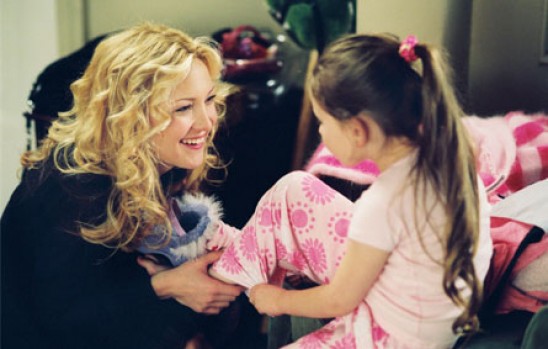What is most important to you? Is it your job where you labor on behalf of an institution? Is it your life where you labor on behalf of yourself? Or is it your family where you labor on behalf of others? Often culture stresses self over others: we should be happy. Reality screams, on the contrary, that fulfillment not happiness may be our best end. No one ever gets all they want in this life. Yes, some will attempt to tie importance to stability or comfort. The problem with the first suggests a risk-free zone; the problem with the second implies an others-free zone. Sometimes movies rise above a pie-in-the-sky approach to living, placing the proper accent on what is important. Raising Helen both raises the question and rises above the fantasy.
Romantic comedies—or ‘rom-coms’—are the perfect form to address hard questions. Levity is the coat worn by difficult discussions. Laughter lightens the heavy moment. If people are smiling while the movie is preaching, all the better. A. A. Milne said it best, “Comedy plays close to the white hot fire of truth.” Mixing comedy with romance allows the filmmaker a perfect vehicle for love relationships. Tense situations are overcome with a grin. Problems are met with solutions dipped in humor. Viewers also relate to story where possibility exists: and love is a universal language. Of course critics loathe rom-com movies which bear the mark of cliché. Raising Helen is gifted with every formula the critics hate and audiences love. We like simplicity in our characters, we resonate with situations like ours, predictability is what we like because stability is what we need, and a happy ending is what everyone wants.
In Raising Helen loves’ focus shifts from self to others. We, the audience, unconsciously participate in the anguished-angst of a character much like ourselves. “I can live my life more easily if all I need worry about is myself” is an honest statement if we are honest with ourselves. Everyone resonates with such a conclusion: and everyone knows the conclusion is wrong. We also know that our lives are not so cloistered. Life is shared with folks for whom we bear responsibility. Deep down in each one of us there is a voice, sometimes stifled, other times released: “You know you should be a better friend, spouse, sibling, caregiver than you are” we hear in our conscience. Raising Helen unplugs our ears.
We need movies which depict our self-centeredness. Actors Joan Cusack, Helen Mirren, Hector Elizondo, and John Corbett help lift the mirror, exposing our narcissism. Director Garry Marshall has given us a laundry list of wonderful others-centered love stories (Beaches, Princess Diaries, Valentine’s Day, New Year’s Eve) and that love story to beat all love stories, Pretty Woman. Kate Hudson reprises her mother’s role in a similar Marshall movie Overboard while Corbett plays one of the few positive pastoral roles Hollywood has offered in the last few decades. Without a sermon it is the pastor who points out what is important in life. The break-up is the set-up for true love.
Mark does not believe in ‘chick-flicks’ because he thinks everyone wants to be loved. Rated PG-13 for sexual dialogue, some language, and some adult situations. Tweet or share.

